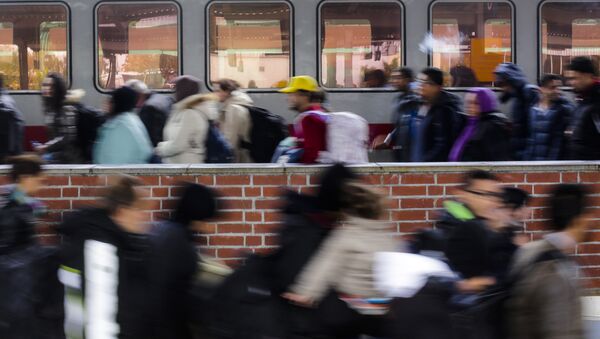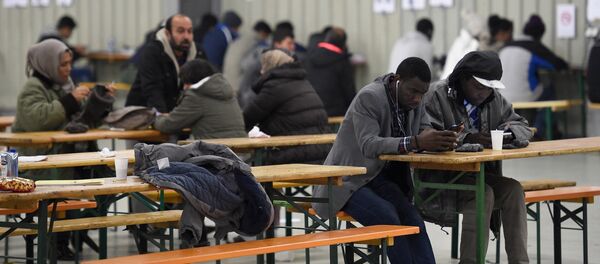Despite widespread public and political criticism over Germany's approach to the recent refugee crisis — which has seen thousands of people arrive in the country on a daily basis — Marcel Fratzscher and Simon Junker, researchers from the German Institute for Economic Research (DIW), believe that the increase will be "a win for everyone" in the long-term.
Langfristig können alle von den #Flüchtlingen profitieren – wenn die #Integration gelingt https://t.co/dUaQL9ifhX pic.twitter.com/45b2Gd5tzT
— DIW Berlin (@DIW_Berlin) November 5, 2015
Fratzscher, President of the DIW, said that although the increase in refugees would create "enormous challenges" for government officials, the current debate was focusing too much on the costs of supporting the new arrivals, which he said was "too short-sighted."
Germany: despite logistical challenges #refugees will boost economy Positive impacts of refugee is a vital message https://t.co/4Cpw9VZrTh
— Rachel Maria Scott (@RachelsTwits) November 1, 2015
He said that even though there would be some issues with new arrivals entering the workforce, it would add a "positive economic impetus for Germany in the long term [and] exceed the costs."
Fratzscher said that the increase in population will increase demand within Germany's national economy:
"Those refugees who find jobs, stimulate the economy […] all in all, the economic growth will rise, but the question is, at what point will this be the case."
A Question of Timing
While the focus of public debate has been on the short-term costs of housing and providing services to Germany's new arrivals, researchers from the DIW say Germany will start to reap the benefits of the refugee influx "within the next five to 10 years."
It's thought that Germany has already spent about US$10.8 billion (€10 billon) in resettling and providing services for refugees, with critics accusing the government of risking the country's social and economic stability.
However, the DIW concluded that while at the beginning the costs clearly outweigh the benefits, within a few years Germany would experience an economic boost as a result of the increase in population.
Researchers based their results on the assumption that 1 million refugees will arrive in Germany this year and next year, with half a million each after that until 2018. It also assumed that 40 percent of new arrivals would stay for 20 years or more.
On top of the baseline results, researchers also produced a set of pessimistic and optimistic findings, and found that Germany would experience an economic boost under all three circumstances. Simon Junker, deputy head of the DIW said:
"Even in the pessimistic scenario we adopted, the per capita income of people living in Germany already increased [within ten years]. In a favorable case, the positive effect can even adjust more rapidly, possibly after four to five years."
Calls for More Positive Immigration Debate
The DIW findings come amid a recent push from policy advisers to embrace the influx of refugees into Germany as something that is beneficial in helping the country overcome it's future demographic crisis.
Due to lower births rates and an ageing population, Germany's working population is expected to drop by about 4.5 million over the next decade unless significant immigration stops the trend.
A recent report released by the Macroeconomic Policy Institute said the influx in refugees would "act almost like a stimulus program" which would help boost investment in infrastructure projects.
Meanwhile, David Folkerts-Landau, chief economist with Deutsche Bank, said the increase in refugee numbers has "the potential not just to invigorate our economy but to protect prosperity for future generations."






